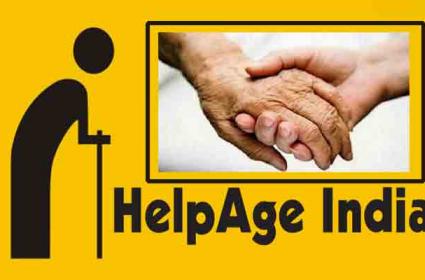Create Elderly-friendly Institutional Mechanisms To Deal With Elderly Abuse

HelpAge India, on the occasion of UN-recognized ‘World Elder Abuse Awareness Day’ (June 15), released its national report ‘Bridge the Gap: Understanding Elder Needs’. The report reveals trends pertaining to elder employment, their abuse within and outside the family systems and data on facilities in terms of hospital, pensions, and insurance facilities around.
HelpAge has been researching the impact of the pandemic on the elderly, with COVID-19 being the silent tormentor for the past two years. This year is significant from the point of view of the time-lapse post the devastation of the pandemic and seeing early signs of recovery. The report, therefore, focuses not just on the core existential issues of abuse that the elderly deal with on a day-to-day basis but also takes stock of the entirety of their experience, including their and families' opinion about employment opportunities for them.
Based on the UN Principles on Ageing of self-fulfillment, participation, independence, dignity and care, the aim of this report is to understand the overarching gaps that prevent the elderly from living happy, healthy and productive lives. It is interesting to note that nationally, 47% of the elderly are dependent on their families for a source of income, while 34% are dependent on pensions and cash transfers. Meanwhile, in Bengaluru, 59% of the elderly are dependent on family, while an equal number (59%) depend upon pensions and cash transfers. This means that many elderly people in Bengaluru have both family and pension support.
However, when asked about the sufficiency of their income, 52% of the elderly in the nation said it was insufficient. Meanwhile, a substantial 40% of seniors said they do not feel financially secure, citing their ‘incurred expenses are more than savings/income’ (57%), and their pension not being enough (45%) as the top reasons. This suggests both financial planning for later years and social security need much greater attention. Meanwhile, in Bengaluru, 78% of the elderly say that their income is adequate, while 22% say it is inadequate. Overall about 79% of elders in Bengaluru say they have financial security.
Prakashan M, State Head – Karnataka, HelpAge India spoke to Sakshi Post about the services rendered by the organization and his insights into the welfare of the elderly senior citizens.
Your organization works with disadvantaged older people, what first drew you to the cause? Why did it resonate with you?
There is approximately 138 million elderly in India, forming nearly 10 percent of its population out of which 90% of elders are from the unorganized sector, 20 million destitute widows, Just 10% have a pension or financial support, 25% can’t access or afford healthcare, 11% live alone and more than 21% and many elderly are abundant. So, HI intervention is very much required to address their problem mainly on Health, livelihood, advocacy, economic security, and AgeCare activities. We have developed projects on the basis of their problem and implemented more than 900 projects to impact many lives of disadvantaged elderly. We will continue to do more advocacy to fight for the rights and entitlement of disadvantaged elderly and provide them with a dignified life.
We all know that the COVID-19 pandemic impacted the older demographics more than others, how did your organization deal with it?
HI started intervention in April 2020 and distributed cooked food to the poor older persons in communities and old age homes along with creating mass awareness on COVID protocols. Later this was replaced by dry ration distribution and immunity booster kits. Hygiene items, nutrition kits, and face masks were also distributed to poor older persons. Our Mobile Healthcare Units distributed medicines and meted out treatments to poor older persons, most of whom suffered from chronic ailments such as diabetes, hypertension, high blood pressure, etc., and had no access to their medicines during multiple lockdowns and could not afford any medications. Some form of telemedicine consultation also started during the lockdown. Our Elder helplines also started operating providing linkages to people for medical assistance, Covid awareness, etc. Vaccination drives were also started for them.
While writing our article for World Elder Abuse day, we found that a lot of abuse cases go unreported, what is your stance on this and what do you think the major cause of these cases going unreported is?
There are many reasons ranging from economic and emotional dependence of the older person on the abuser, who in most cases is a family member or adult child. Then there are considerations of family honor and family matters. Lack of awareness of what can be done, laws that are there to protect, and also lack of faith in the institutional response to elder abuse.
What steps do you think the government can take to reduce the rate of elder abuse in the country?
Create elderly-friendly institutional mechanisms to deal with the issues. These systems should be sensitive to the special needs of older persons. The structure should be that of outreach and maintaining confidentiality. Easy reporting and timely redress would give confidence to an older person and act as a deterrent to the potential abuser. The government can also encourage community action in cases where informal ways of conflict resolution can help.
Talk to us about your organization, what exactly does HelpAge India do for Elders and senior citizens?
Set up in 1978, the organization works for ‘the cause and care of disadvantaged older persons to improve their quality of life’ HelpAge envisions a society where the elderly have the right to an active, healthy and dignified life.
The organization focuses on direct interventions in the areas of Healthcare (mobile healthcare units, cataract surgeries), Age care (elder helplines, senior citizen care homes and daycare centres, physiotherapy), Livelihoods (elder-self-help groups; linkages with government schemes), Disaster Response (e.g. covid19 relief response), as well as Advocacy and Awareness on rights and policies relating to elders. It works hand-in-hand with Senior Citizens Associations and empowers seniors through Digital Literacy workshops, so they can lead independent and active lives. It runs a school advocacy program sensitizing young children toward elder needs and urging them to treat elders with love, care & respect.
A lot of the younger generations might be reading this, what would you want to say to them in this context?
Older persons are a resource and should be treasured for the fact that they normally are selfless benefactors. Older persons should be valued not because of what they can give you in terms of money but what they can give you in terms of love and affection, conventional wisdom, and a link with tradition and culture. Without all this, we would be only economic beings, not human beings.
You conducted a study into elder abuse rates, could you shed some light on some of the findings?
Usually, we find that the rate of abuse is high mostly in double figures. The exact range of experienced abuse may range between 10 to 30% but when we ask about prevalence in society, the response of the older persons is much higher than the experience rate. We infer that its prevalence is higher than reported.
Did any of the findings from your study startle you or take you by surprise?
Initially yes, because we did not expect the rate of experience to be even close to what was reported and the perpetrators to be the son and daughter-in-law who were the main caregivers. Over the years daughter and son-in-law also joined the dubious league. A surprising fact is that the family and community could not curb it despite us taking pride in the fact that we are a society that values interpersonal relationships.
So far, what has been the most rewarding part of this experience?
The government took note and passed a law to protect older persons and parents. The police officers and others were given periodic training to deal with cases of elder abuse. Starting a helpline for older persons.
What steps do you think youngsters can take to make Elders feel better and less lonely?
Include older persons in your family and neighborhood in your activities. Try to involve them in the new 21st-century society without being condescending. Help them keep up with the digital age, teach them how to use smartphones, computers, and ATM machines, browse the internet, do online banking, pay their utility bills, and use various Apps. Introducing them to the digital space will open up a whole new world for them and avoid social exclusion while improving their quality of life.
What do you think sets HelpAge India apart from other organizations that work in the same field?
We have extensive experience in attending to the needs of older people from all starts. We try to address all the challenges that the aging population faces in day-to-day life and in policy matters. We try to partner with them as and when to take their concerns to the world. We try to find relevant solutions to their problems and include all stakeholders in the process.
Also Read: How India's Elderly Population Unleashes The Powers of New Age Technology



















